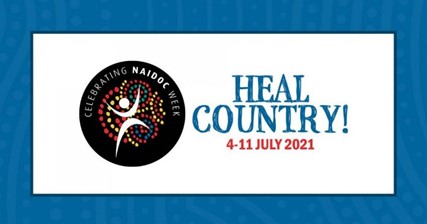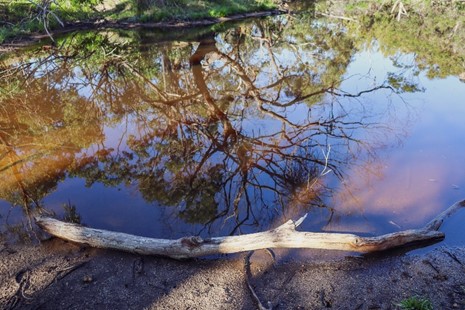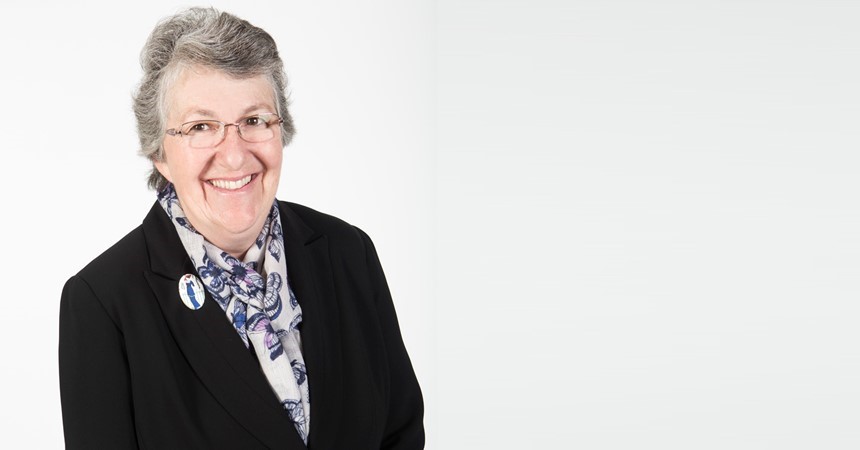The theme for this year’s NAIDOC week is Heal Country. Today our world is in need of healing – environmentally, spiritually and socially. We must all come together as a global community to fight the injustices of inequality, racism and environmental damage. There are over 130,000 Aboriginal and Torres Strait Islander Catholics in Australia, and our diocese has the third highest number of Aboriginal and Torres Strait Islander Catholics in Australian with 7,235.

Our Christian faith is built on love, forgiveness and healing, as well as the care of creation. Living in this sacred place, known as the Great South Land of the Holy Spirit, invites us all to be conscious of our land, our waters as well as the cultural heritage handed onto the Aboriginal and Torres Strait Islander people. We must protect our home from exploitation, desecration and destruction. We are called to respect, and have a respectful and life-giving relationship with, the land and with each other.
The following was noted in the homily notes of the NATSICC resource produced for this Sunday:
2021 marks the 250th Anniversary of the arrival of Christianity in Australia. Yet the Spirit of God was poured out onto the original inhabitants of this great Southern Land many, many thousands of years prior. God’s Spirit could be heard through the singing of the birds, the cascade of the waterfall, the rustle of the wind and, most importantly, in silence.
Australia. Yet the Spirit of God was poured out onto the original inhabitants of this great Southern Land many, many thousands of years prior. God’s Spirit could be heard through the singing of the birds, the cascade of the waterfall, the rustle of the wind and, most importantly, in silence.
Miriam-Rose Ungunmerr-Baumann, a respected Ngangiwumirr Elder, artist and 2021 Senior Australian of the year explains the importance of listening and understanding the silence:
My people today, recognise and experience in this quietness, the great Life-Giving Spirit, the Father of us all. It is easy for me to experience God’s presence. When I am out hunting, when I am in the bush, among the trees, on a hill or by a billabong; these are the times when I can simply be in God’s presence. My people have been so aware of Nature. It is natural that we will feel close to the Creator.
We are blest to have in our diocese an Aboriginal and Torres Strait Islander Catholic Ministry Group which has a long history of meeting and gathering. Within this group there is a strong desire to connect the rituals of our Catholic sacraments with elements of Aboriginal spirituality. To provide some more insight from the homily notes for Aboriginal and Torres Strait Islander Sunday:
To sit, talk, and listen is the first step towards acceptance and understanding. Aboriginal and Torres Strait Islander people have longed to share their knowledge and wisdom about the seasons, animals, and flora, but until we, as a society and a country are receptive, their contribution goes unappreciated and unutilised.
The more we share with each other, the more we realise that as humans, we have more similarities than differences. The differences between our cultures should not be seen as weaknesses, for they can also be where our strengths lie. Embracing these differences is an aspect of inculturation. Christian faith must find appropriate expression in each culture – that is what is meant by inculturation. Pope Francis, in his exhortation Beloved Amazonia says:
Inculturation elevates and fulfills. Certainly, we should esteem the indigenous mysticism that sees the interconnection and interdependence of the whole of creation, the mysticism of gratuitousness that loves life as a gift, the mysticism of a sacred wonder before nature and all its forms of life.

The Aboriginal and Torres Strait Islander Catholic Ministry Group is overseeing the development of an overarching diocesan Reconciliation Action Plan, commonly known as a RAP. Our first diocesan RAP will focus on Relationships, Respect and Opportunities.
Session Two of our Diocesan Synod provided us with a number of Recommendations for our consideration regarding Aboriginal and Torres Strait Islander people:
WP 2.2 That we acknowledge and encourage the active involvement of Aboriginal and Torres Strait Islander Spirituality and different cultures in liturgy.
MO 3.1 That our Diocese listens to and embraces the spiritual, ecological, and cultural wisdom of Aboriginal and Torres Strait Islander people.
MO 3.2 That our Diocese, in consultation and partnership with Aboriginal and Torres Strait Islander Catholic Ministry and the wider community, commits to developing tangible mechanisms to embed their rich culture and spirituality in the life of the Church.
I have written previously about Common Grace, a cross-denominational Christian movement, committed to social justice, and, in our Australian context to ‘truth-telling about our history’ including the long story of Aboriginal and Torres Strait Islander stewardship of this land. A prayer and artwork for healing country can be found on their website.
I invite you this week to take time for silence and stillness, to consciously connect with our natural environment and be nourished by it. We are so blest to live in Australia, even in winter.
Teresa Brierley
Director Pastoral Ministries
6 July 2021
Follow mnnews.today on Facebook, Twitter and Instagram.

